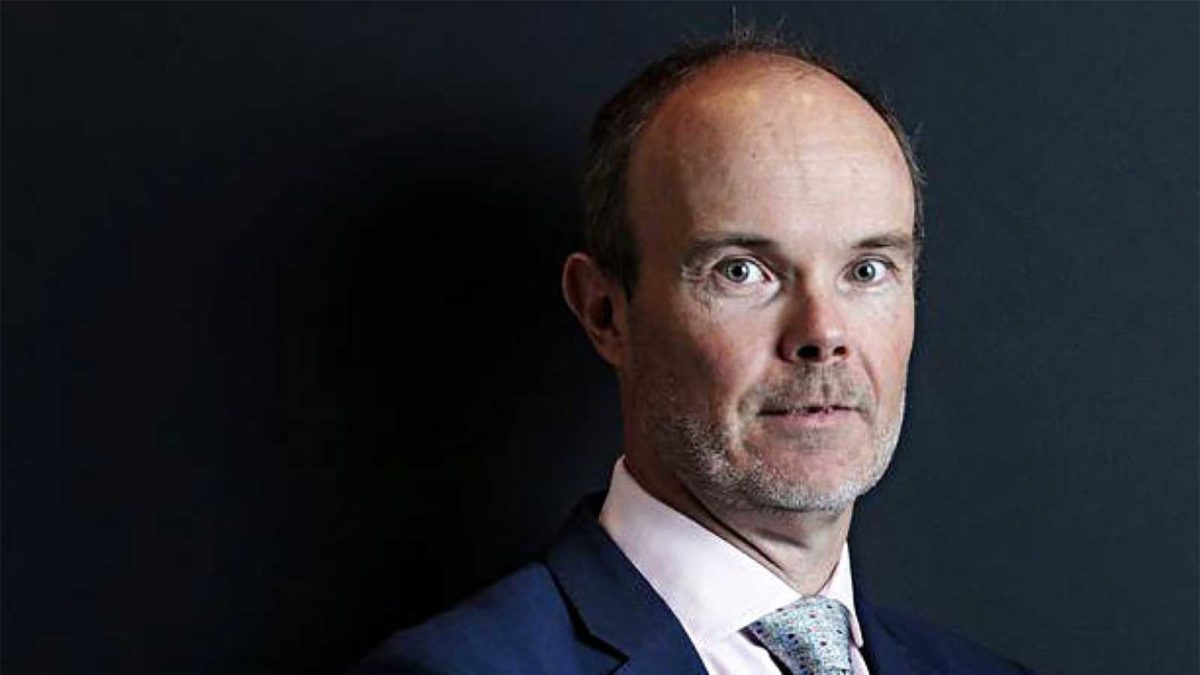Douglass sticks to his guns after horror 2021
After a hellish close to 2021 that saw the departure of one of Magellan’s largest institutional clients, the pressure will be on for Hamish Douglass to do what he says he won’t: prioritise the short-term.
The closing months of 2021 were likely the harshest of Hamish Douglass’s public career. Criticisms of Magellan’s underperformance since the 2020 market rally built to a fever pitch when St James Place, one of its first and largest institutional clients, pulled a mandate worth some $18 billion in a move that saw Magellan’s share price drop around 33 per cent as investors speculated on whether more clients would follow them out the door.
Douglass is now under pressure to execute a sharp turnaround. But that’s not going to happen – or rather, Douglass isn’t going to make it happen.
“I’m not going to start chopping and changing a strategy because my ego has been bruised,” Douglass said in late December. “It’s not about me… I’m not going to start swinging for the fences because I’m embarrassed about underperforming a market in a 12-month period. We have great confidence in our strategy and our team here. This movie hasn’t ended yet; there is a lot of risk in these markets.”
Douglass holds that Magellan is the “designated driver” at an increasingly wild party, echoing Charlie Munger’s assertion at December’s Sohn Hearts and Minds conference that markets are now crazier than at any other time in the venerable investor’s 98-year memory. But he has made some changes – mainly reducing exposure to China after a bet on Ant Group went bad when Jack Ma, its rock star CEO, criticised Chinese regulators and its IPO was shelved.
“China’s a very small part of our portfolio today. You don’t get everything right, and markets can be very humbling,” Douglass said. “But the portfolio has still delivered 12 per cent in the last year, which is above our long-term objective, and we remain very confident that the strategy will still be this low-risk, compounding capital that we set out from day one to achieve for people.”
Douglass reiterated his concerns about omicron and other “escaped mutants”, along with the potential for inflation to be less transitory than expected and for other unforeseen risks to emerge: namely, the possibility that nuclear talks between Iran and Israel could break down (as they often do) and lead to a shooting skirmish.
“If they fail, we’re hearing politically that there’s increased pressure to do a pre-emptive strike on (Iran’s) nuclear facilities. I don’t know what probability we’re putting on that, but then we’re asking (Michael Morrel, former CIA deputy director and an adviser to Douglass) what would happen if that were to occur,” Douglass said.
“It’s his view that Iran would almost immediately start striking oil facilities in the Middle-East. If that were to happen, the game’s up on inflation. There are things that markets aren’t even looking at that could trigger a major market event… a bit of sober reality and prudence is required here.”
Douglass also sought to reduce the fallout from the still mostly-unexplained departure of CEO Brett Cairns, noting that he had almost nothing to do with investment decision making (though he had carved out a space for himself as one of the architects of FuturePay, a retirement product that is part of Magellan’s diversification strategy). The public revelations that he and his wife have separated have also dogged him, with some commentators warning that the psychological strain could impact Magellan’s performance and that the couple could sell down their holdings in the group.
“People have tried to create an image that my wife and I are in some nasty divorce; nothing could be further from the truth… I don’t understand why people would want to try and invent and create circumstances by saying this is going to have an impact on Magellan,” Douglass said.
“If they actually knew us, and knew what was going on, we are completely united and there is no nasty divorce. People were saying we were going to dump our shares in Magellan; that’s absurd. We haven’t sold a single share in Magellan.”











